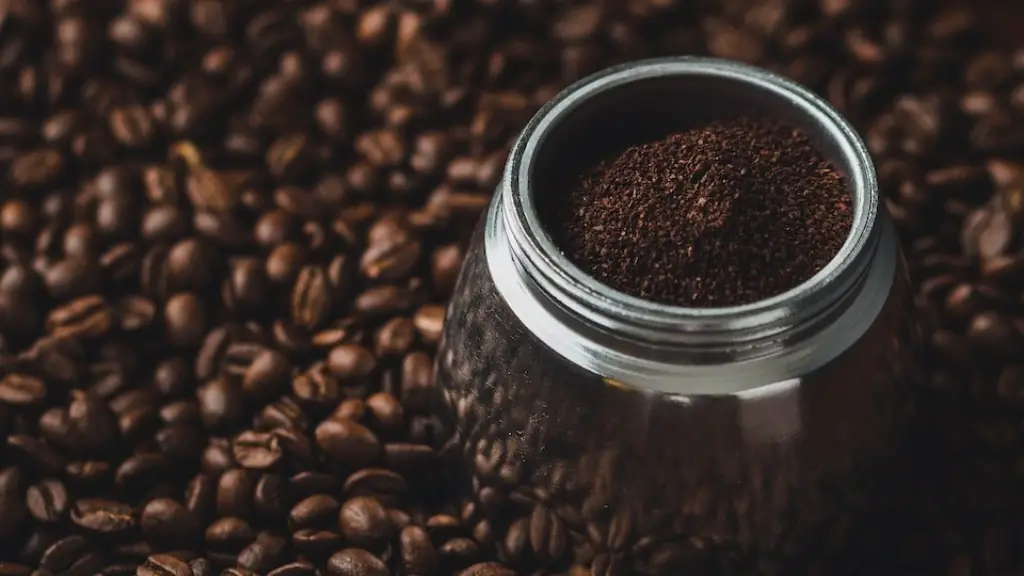The Fears Of Consumption Later In The Day
It can be quite a shock to consider drinking coffee late in the day when the sun is setting, showers are off and bedtime is taken into account. Many people avoid coffee in the evening, fearing that the boost in energy would prevent them from sleeping at night. Many studies have been conducted to determine if it is indeed safe to drink coffee at night, taking into account factors such as when one usually goes to bed, how often it is consumed, how late in the evening it is drunk, as well as what type of coffee is consumed.
Coffee has been around for centuries, and many cultures have included coffee as part of their daily routine. It is a widely-known beverage across the world, and many people rely on it to start off their day, or the occasional afternoon pick-me-up. Depending on the culture, the social customs related to coffee can vary hugely, with many people continuing the popular Europe-based trend of consuming coffee later in the day.
The potential health effects of coffee have been extensively studied in recent years, with some research suggesting that drinking coffee later in the day could impact one’s sleep. Additionally, depending on how late it is consumed, it can interfere with the body’s natural sleep-wake cycle. This can lead to poor overall health, an inability to concentrate and general tiredness. It is important to take into account the individual’s body clock when determining the safety of drinking coffee at night.
Caffeine Sensitivity And Intensity
Caffeine sensitivity can vary huge among individuals and therefore, the effects of drinking coffee in the evening can differ. While some individuals may find that a morning cup of coffee can give them an energy pick up early in the day, the same amount of coffee at night may cause an inability to sleep, or interfere with the body’s natural sleep-wake cycle.
Those who are highly sensitive to caffeine may have more difficulty sleeping at night as their body takes a longer time to metabolize caffeine. Furthermore, the type of coffee bean and brewing method can have a significant impact on the intensity of the effects of the coffee one consumes. For those who are of higher sensitivity, it is best to avoid the darker and more intense flavor of the roasts that may be used late in the day.
Does It Interfere With Sleep?
Medical experts agree that while drinking too much coffee late in the day can harm one’s overall health and disrupt sleep cycles, drinking one or two cups of coffee at night may not be much of a problem. Research has found that only moderate consumption of coffee later in the day does not interfere with sleep cycles. One important factor to consider is that the intensity of the coffee’s effect can be different on different individuals, as some may experience more significant effects from drinking coffee at night due to varying levels of caffeine sensitivity.
Tips For Enjoying Coffee At Night
If one is keen to enjoy a cup of coffee late in the day, there are some tips to consider in order to optimise consumption. Firstly, it is important to use a milder blend and to opt for decaffeinated or low caffeine options. One should also limit their consumption and be mindful of the time of day, ideally allowing six hours prior to going to bed.
It is also possible to combat the effects of caffeine on sleep cycles with more restorative bed-time practices such as reducing screen time, turning off electronic devices and ensuring adequate light exposure in the day. Additionally, practising mindfulness and relaxation techniques such as deep breathing or yoga can also improve overall sleep quality.
Coffee And Anxiety
Coffee has the potential to have an impact on an individual’s anxiety levels, depending on the intensity of their coffee beverage and other personal factors. Alcohol, nicotine and other stimulants can also have an impact on one’s anxiety levels, and therefore it is important to assess the individual’s lifestyle choices in order to determine the best course of action.
Consumption later in the day, including in the evenings, can amplify an individual’s anxiety and lower an individuals ability to cope with stress. While some studies have found that moderate consumption can reduce anxiety levels, it is important to consider individual factors and external lifestyle factors when gauging the impact that coffee can have on an individual’s mental health.
Coffee Consumption and Heart Health
A recent study conducted by researchers has demonstrated that drinking more than four cups of coffee a day can increase the risk of atrial fibrillation, a type of irregular heartbeat. Additionally, coffee consumption has been linked to increased blood pressure and other heart-related issues. For those who suffer from heart issues or have a family history of heart-related issues, it is important to speak to a health professional regarding the recommended daily intake.
In contrast, other studies have found that moderate coffee consumption may have a protective effect on the heart, as it may prevent clogging of the arteries. It is therefore important to consider individual factors when assessing the potential risk of drinking coffee at night.
Coffee Consumption and Digestion
One of the main concerns with drinking coffee later in the day is the potential impact it may have on one’s digestion. Caffeine has been shown to increase stomach acid production and can lead to heartburn and bloating. Additionally, some individuals may be sensitive to the effects of coffee, leading to a disruption of the natural digestive process.
The amount of coffee consumed in the evening will drastically effect the rate of digestion and therefore it is recommended that individuals only consume a cup or two at a time to avoid any potential issues. To counteract the impact of caffeine on digestion, it is advised that one consumes foods high in fiber alongside their evening coffee routine.
The Impact On Mental Health
One of the most common mental health issues reported by individuals is anxiety, and the potential impact that coffee late in the day can have on an individual’s anxiety levels is much-debated. Some studies have found that the effects of caffeine on sleep and the individual’s body clock can contribute to anxiety, as getting a poor night’s sleep can alter an individual’s mood and mindset.
However, other studies have concluded that moderate coffee consumption can reduce anxiety levels, as the mild stimulation of caffeine can lift mood and improve mental focus. Again, it is important to assess individual factors such as personal sensitivity and external lifestyle stimuli, prior to making any judgement on an individual’s coffee consumption.
Coffee Consumption And Bone Health
Recent studies have shown that consuming high levels of caffeine throughout the day can have an adverse effect on one’s bone health, as it reduces the amount of calcium that is absorbed by the body. This can impede bone regeneration, compromising the overall bone health of individuals who consume too much coffee.
Coffee has also been linked to lower bone density and an increased risk of bone fractures. To counter these effects, individuals are recommended to obtain adequate levels of calcium and vitamin D from other sources, such as dairy products, fish or oil. Additionally, the individual’s drinking habits should be assessed in order to ensure that their overall caffeine intake is within healthy parameters.
Does Drinking Coffee Late At Night Have Positive Benefits?
Coffee has been linked with a number of positive effects, such as improved mood and mental alertness, improved energy levels and the potential prevention of chronic diseases such as Alzheimer’s and Parkinson’s. Studies have also demonstrated that coffee can positively impact cognitive abilities such as memory and planning.
For those who have difficulty concentrating in the evening due to stress or fatigue, caffeinated coffee can provide a stimulant that can help improve focus and concentration late at night. However, as with any other stimulant, it is important to take caution on the amount consumed and to assess individual sensitivity levels in order to avoid any potential sleep interruptions.


